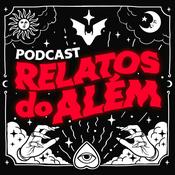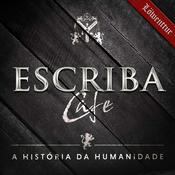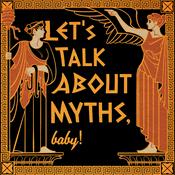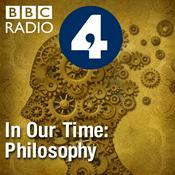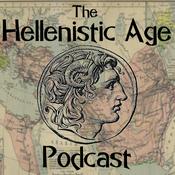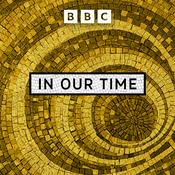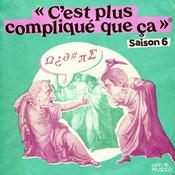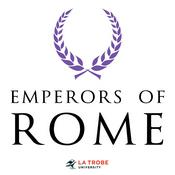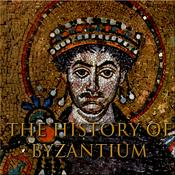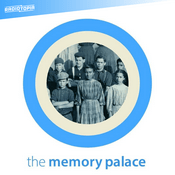21 episódios
- Odyssey: The Podcast picks up right where Trojan War: The Podcast leaves off: with the city of Troy a smoldering ruin, and Odysseus staring out across the wine-dark sea, readying to guide his surviving 600 soldiers back home to Ithaka. The fourteen episodes of Odyssey: The Podcast follow the identical format of Trojan War: The Podcast--an entertaining story (this time grounded in Homer's Odyssey) followed by Post Chapter Commentaries. Your storyteller and traveling companion, Jeff Wright, remains the same!
In 2020 Odyssey: The Podcast was awarded the prestigious FORUM PRIZE by the Society For Classical Studies, who proclaimed it the best public-facing contribution to the classics, in any medium, produced in the previous year.
You can listen to all fourteen episodes of Odyssey: The Podcast from its website, odysseythepodcast.com, or direct from your favorite podcast listening platform.
Enjoy,
Jeff Wright - ODYSSEY: THE PODCAST - my 14 episode, 24 hour sequel to Trojan War: The Podcast - is now recorded and waiting for you. Subscribe through your usual podcast provider, or go to odysseythepodcast.com!
THE STORY: (40 minutes) Zeus, King of the Gods, hosts a wedding. An uninvited guest crashes, bringing an unwelcome gift. In mere moments, all Hades breaks loose. And the wheels of Western culture’s most awesome epic - the Trojan War - are set in motion.
THE COMMENTARY: DID THE TROJAN WAR REALLY "HAPPEN"? (9 minutes; begins at 40:00) In this episode of post-story commentary I spend some time talking about how the Trojan War epic, though over three thousand years old, remains deeply embedded in contemporary culture. I note how we are all familiar with the names (Achilles, Helen of Troy, Hector), the images (The Trojan Horse), and the concepts (“the face that launched a thousand ships”; “beware of Greeks bearing gifts”; “his Achilles’ Heel”) that originate in this epic. Then I review the “history” of the story: from a war that may or may not have happened circa 1250 BCE, through five hundred years of post-war “oral tradition”, up to Homer’s written account – The Iliad - in 700 BCE, and on to the contributions of further storytellers, including the Roman poet Virgil in 19 BCE. I confess to how wonderfully liberating it is for a storyteller like me to be free to sort through the myriad sources, stories and texts (many of which contradict each other), and then “glue them together” into one big, cohesive, entertaining plot. I conclude the post-story commentary by definitively answering the burning question of whether the Trojan War ever really happened.
Hope you have fun.
Jeff
RELATED IMAGES - THE STORY: (54 minutes) A queen is visited by a terrifying nightmare. Priests discern what the nightmare means. And a king is faced with a soul-wrenching dilemma: “do I kill my child, or allow my city to burn?” And the king’s decision …? Well, you’ll have to listen in to see how that turns out.
THE COMMENTARY: FATE VS. FREE WILL (16 minutes; begins at 54:00) In this episode of post-story commentary I explore the role of “Fate” in the Trojan War epic. I observe that most of us listening to this podcast (in the 21st century) like to believe that we have some sort of control or agency over our lives. We like to believe that we each have, to a large degree, freedom to choose how our lives will transpire – sort of like being the authors of our own “choose your own adventure” lives. I contrast this belief with the understanding of Bronze Age Greek culture (where our epic story takes place). These people did not believe in agency or free will (except in minor day to day questions, like “will I have fish or lamb for dinner this evening?”). But on the big questions of how one’s life – one’s “adventure” if you will – was going to unfold, well, the Bronze Age Greeks did not believe in free will. Rather, each person (and possibly even the Olympian gods too) was subject to an unavoidable fate or destiny. I cite the famous story of Oedipus to illustrate how this inexorable fate would have been understood by the characters in our story. And I conclude by exploring how the people that we are going to meet in this awesome epic still managed to find meaning, dignity and purpose in a universe governed by Fate. I think you will find the conversation educational, but mostly just a lot of FUN!
Jeff
RELATED IMAGES - THE STORY: (38 minutes) A miraculous child survives not only the homicidal raging of an angry demi-god, but also an icy immersion in a magic river and the venomous bite of a deadly snake. Then the child turns two, and his real adventures begin.
THE COMMENTARY: THE ACHILLES STORIES THAT I DID NOT TELL YOU (16 minutes; begins at 38:00) I begin this episode of post-story commentary by discussing the reasons for the popularity of “Achilles stories” in the Bronze Age and Classical Greek world. I then briefly review some of the "birth of Achilles" stories that I chose to leave out of my account of Achilles’ early life. Following that, I review one particular major point of difference between Achilles as I present him in my story, versus Achilles as Homer chooses to portray him in The Iliad. This leads to a discussion of what “Achilles stories” were actually available and known to Homer when he wrote his epic, circa 700 BCE..
Have fun!
Jeff
RELATED IMAGES - THE STORY: (30 minutes) Hermes, the messenger god, locates a “highly qualified” judge for a beauty contest between three powerful, vain and vindictive goddesses. One of the goddesses is cruising to what appears to be certain victory, until her competitors propose a “twist” on the contest rules. And our judge – a boy you already know – is suddenly confronted with a choice: political power, military glory, or some smokin' hot … But you'll have to tune in, if you want to find out exactly what happens.
THE COMMENTARY: (14 minutes; begins at 30:00) I begin the post-story commentary by acknowledging some of the “time line inconsistencies” inherent in this episode. Has it really taken Zeus eighteen years to find a judge for a beauty contest? I explore some of possible solutions to the time line problem, including: “look the other way and pretend it isn’t there”, and “employ Einstein’s theory of relativity to reason the problem away". Eventually I give up and simply acknowledge that timeline problems are endemic to stories grounded in the oral tradition, or to stories penned by multiple authors working without central editorial oversight. I note that timeline inconsistencies are not unique to Greek epic, and cite by way of example the creation stories (both of them) in the book of Genesis.
I then turn to a discussion of The Judgment of Paris as a favourite subject of visual artists, from the time of Classical Greece to the present. I muse about why this work has been so consistently popular with artists, and decide it must be because: a) everybody already knows the story, and b) the artist gets to paint three really hot women in the nude (the women in the nude that is, though I suppose nudity might have been the artist's aspirational outcome too?). I then spend some time “deconstructing” Rubens’ famous The Judgment of Paris painting (check out the RELATED IMAGES below). I note that the three Olympian goddesses are traditionally depicted in art accompanied by certain “props”, that offer viewers the necessary clues to figuring out who is who. Athena: a helmet, a shield with a monster’s head, and an owl to represent her wisdom. Hera: a peacock. And Aphrodite: accompanied by her son Eros – the “Valentine’s Day boy” if you will, complete with bow and quiver of “erotic arrows”. In any Judgement of Paris painting, I note, Aphrodite will always be the goddess in the most flagrantly sexual pose, as befits her status as goddess of lust and sexual passion.
Finally I conclude the post story commentary by relating the story of my teenage son’s response - “on first looking into Rubens’ Judgement”. My son found the goddesses in the painting shockingly “Rubenesque”, which led the two of us –father and son – into a long winded discussion (more of a lecture by father actually) on the culturally implicated and temporally transient nature of female beauty. And that’s where I wrapped things up. To test your skills in “goddess identification” check out Raphael’s “Judgement of Paris” painting, posted below. Have Fun.
Jeff
RELATED IMAGES
Mais podcasts de História
Podcasts em tendência em História
Sobre TROJAN WAR: THE PODCAST
Trojan War: The Podcast is a serialized telling of the stories that together comprise the epic story of the Trojan War. From The Judgement of Paris through The Face that Launched a Thousand Ships to Achilles’ Heel and Beware of Greeks Bearing Gifts, this epic story has it all! Each podcast episode features one self-contained episode in the overall story arc, followed by about fifteen minutes of conversation and commentary on the compelling and provocative contemporary ideas that emerge from the stories. The tone of Jeff Wright, the storyteller, is modern, engaging, and informed. He is comic, occasionally irreverent, and always entertaining.
Site de podcastOuça TROJAN WAR: THE PODCAST, História em Meia Hora e muitos outros podcasts de todo o mundo com o aplicativo o radio.net

Obtenha o aplicativo gratuito radio.net
- Guardar rádios e podcasts favoritos
- Transmissão via Wi-Fi ou Bluetooth
- Carplay & Android Audo compatìvel
- E ainda mais funções
Obtenha o aplicativo gratuito radio.net
- Guardar rádios e podcasts favoritos
- Transmissão via Wi-Fi ou Bluetooth
- Carplay & Android Audo compatìvel
- E ainda mais funções


TROJAN WAR: THE PODCAST
Leia o código,
baixe o aplicativo,
ouça.
baixe o aplicativo,
ouça.






